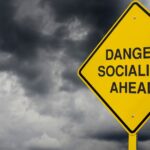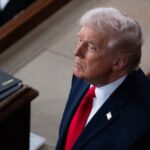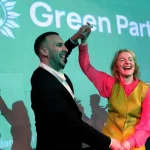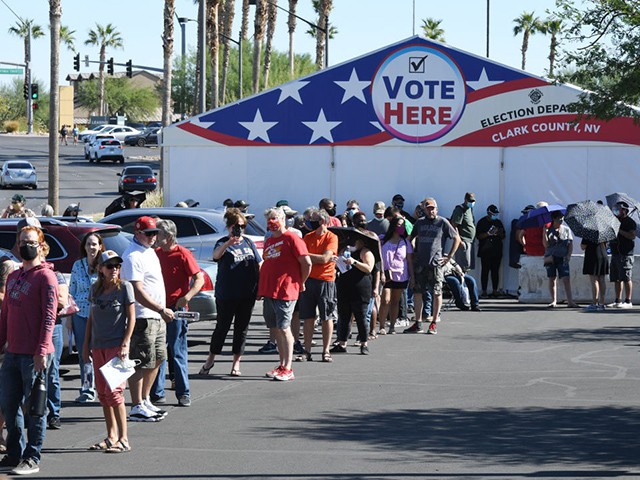
Seventy-one percent of voters say the economy is either fairly or very bad, up forty-nine points under Democrat rule, a Monday Civiqs poll found.
While 45 percent said the economy is very bad and 26 percent said it is fairly bad, for a total of 71 percent, only two percent said it was very good. Just 22 percent said it was fairly good. Overall, 24 percent said the economy was good.
The Civiqs poll averaged 780,125 responses tracked between January 15, 2015, and October 30, 2022. The Civiqs tracking model captures the shifts in attitude of various groups over time across all 50 states and Washington, DC. These changes can happen either rapidly or over time.
Monday’s polling, just eight days ahead of the midterm elections, shows voters’ opinions of the economy have sunk under Democrat rule. The day Democrats assumed control of the White House, Congress, and the administrative state, 72 percent said the economy was very (38 percent) or fairly (34 percent) good.
Just seven percent said the economy was very bad. Fifteen percent said it was fairly bad. Overall 22 percent said the economy was bad.
Under Democrat rule, annual wages for American families are down $6,000 after adjusting for inflation, an $1,800 increase in lost income from September, an October Heritage Foundation study revealed.
Inflation, the number one issue in every Senate swing state, is sure to impact the midterm elections. Jonathan Weisman and Neil Vigdor of the New York Times urged the Democrat party last week to “switch tacks” on inflation they “exacerbated” through massive spending.

People line up to vote at a shopping center in Las Vegas, Nevada. (Photo by Ethan Miller/Getty Images)
“Democratic candidates, facing what increasingly looks like a reckoning in two weeks, are struggling to find a closing message on the economy that acknowledges the deep uncertainty troubling the electorate while making the case that they, not the Republicans, hold the solutions,” they wrote.
“[M]ost economists do believe some Democratic bills — especially the $1.9 trillion American Rescue Plan — exacerbated the problem,” the writers acknowledged. “The $1,400 checks that most American households received in 2021 have been forgotten. Their contribution to an overheated consumer economy has not.”
Democrats have also tried to reduce inflation by enacting the so-called “Inflation Reduction Act,” which experts say will not reduce inflation but could further increase soaring costs.
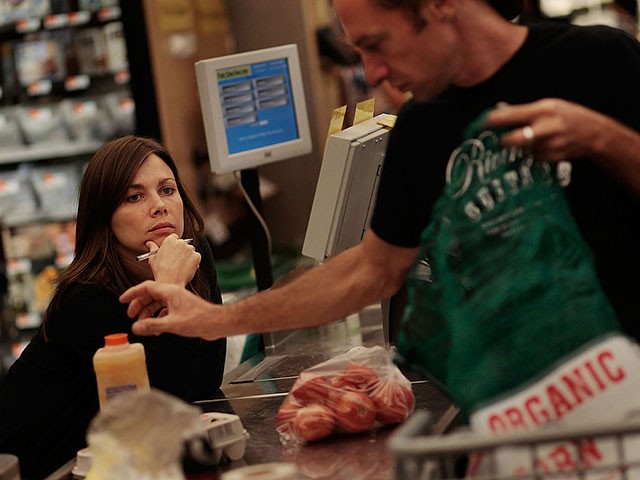
A co-op shopper (R) bags his groceries while a fellow co-op member works the cash register at the Park Slope Food Coop on September 17, 2010 in the Brooklyn borough of New York City. (Chris Hondros/Getty Images)
Follow Wendell Husebø on Twitter @WendellHusebø. He is the author of Politics of Slave Morality.

